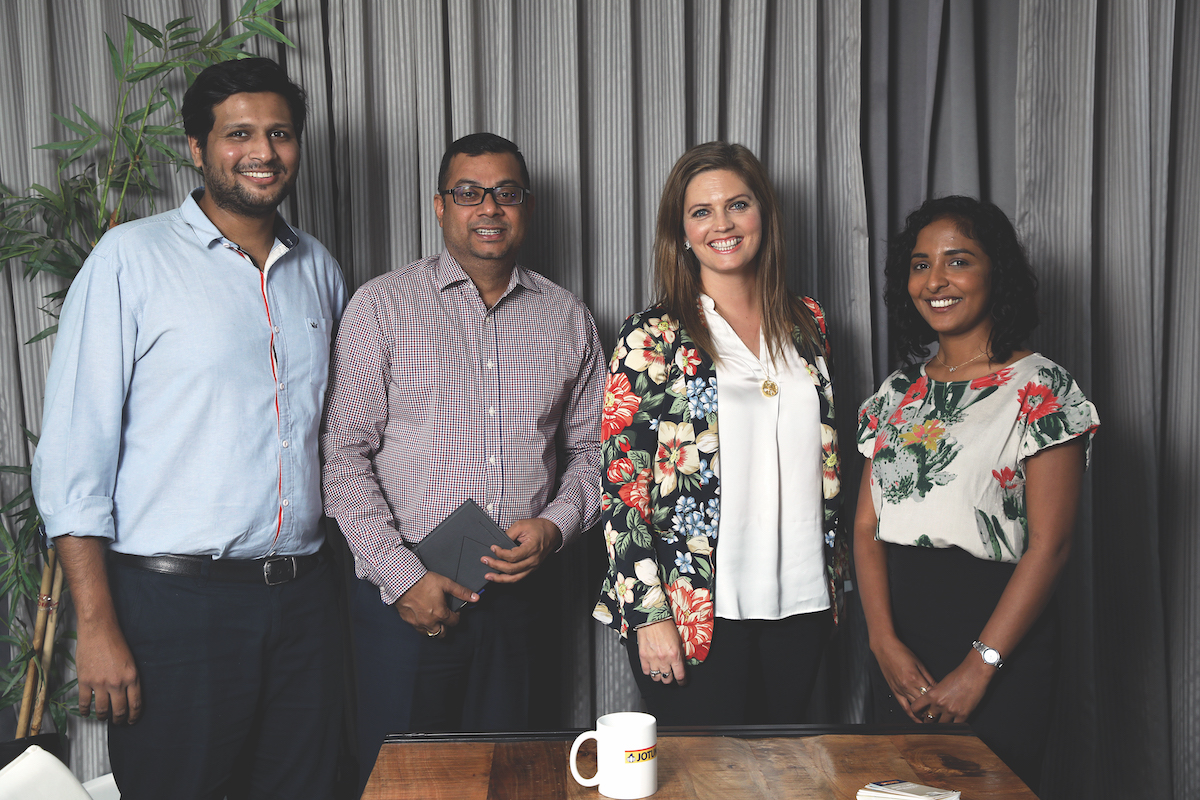Penguins are resilient and reliable. They enter monogamous relationships, nest in the same rookery for life and survived whatever killed the dinosaurs.
That’s why Kristine Anvik Leach, Managing Director of Jotun India, likes to call everyone she works with a penguin. “I’ll walk right up to them and say, ‘Good morning penguin!’”
It seems unusual but at Jotun they call it the ‘penguin spirit’, an effort to associate workers with the symbol of company culture.
“The penguin values loyalty, care, respect and boldness,” she tells The CEO Magazine. “These aren’t values that are written by consultants or referred to once a year. They’re the values that we live by.”
Leading the company, Kristine says her focus is on driving people, and the penguin is a helpful reminder of what she expects from the team. “I’m managing people and ensuring there’s quality from our services. That comes through the ambition I help cultivate, being in the workplace and understanding what people want. I think the penguin really drives that point home.”
Fresh coating
One of the world’s largest paint companies, Jotun manufactures a range of performance coatings and decorative paints. Based in Norway, the business was founded in 1926 by Odd Gleditsch Sr., a man who prided himself on his “ability to find able employees and to listen … to their thoughts, suggestions and ideas”.
Operating for more than 90 years, Jotun is today present in seven regions with 40 production facilities spread across more than 100 countries.
Managing Jotun’s operations in India is Kristine. She says she is proud of its presence in the country and the fact that it produces most of the paint it sells to the local market.
“We make paint in India for India, and we have opened a brand new research and development centre because we want to target the Indian market directly while ensuring the entire supply chain is located in India.”
Kristine joined Jotun in 2011 working in the company’s Norwegian office, before moving into the role of Regional Marketing Director of South-East Asia in 2013.
“I was overseeing countries including Singapore, Cambodia, Myanmar, Vietnam, Thailand and Indonesia, and really became focused on people. I wanted to respect and understand their culture, see what they were thinking and help them work towards their goals. It was difficult, but an important and rewarding professional step for me.”
She was there for more than four years before being transferred to India in 2017, moving into her current role as Managing Director. Having learned a lot in Malaysia, Kristine says she was excited to expand her responsibilities in a region as large as India.
“There were so many prospects in the market. I had the opportunity to oversee the production of decorative paints, protective coatings, marine coatings and powder coatings, which was exciting because this is one of the few regions where that is done. It was extraordinarily complex and challenging but it was exciting for me to take on.”
Recognising that “there’s a lot going on” in India, Kristine says her first priority was to clear away the “noise” from the company.
“There are a lot of promising ideas in this part of the world, but we can’t look at all of them. I wanted to focus on what we must do and ensure people know what they’re doing. It’s important we continue down that path of knowing our competencies and not diversifying without reason.”

Jotun is growing by more than 20% per annum in the region, and Kristine believes this will be significant going forward. She says Jotun’s “robust growth strategy” is about ensuring growth for the company is sensible and sustainable.
“India is a complex market and you can get caught in a game of volume and start overproducing. That’s not part of our business model, though. We’re not thinking of short-term benefits; we’re building long-lasting relationships with customers across all four paint segments – decorative paints, protective coatings, marine coatings and powder coatings."
“We’ve already seen the market for decorative paints growing and the market for marine paints slowing. With marine paints, we already have the market share, so we want to focus on working with our partners in the long term. On the other hand, we must target the decorative paints segment more aggressively for growth. That’s how we can be true to our strategy of sustainable, profitable growth that focuses on quality as opposed to quantity."
Part of that strategy will include understanding local factors; Kristine says the depreciation of the rupee along with political uncertainties will create challenges for the business.
“I think though that if we continue our current strategy and focus on our value as a company, then we’ll overcome any challenge. We obviously want to grow along with the Indian economy, but we also need to be ready to withstand its challenges.”
“We obviously want to grow along with the Indian economy, but we need to be ready to withstand its challenges.”
Painting pictures
Speaking about Jotun’s Indian manufacturing facility on its 10th anniversary, Kristine returns to a familiar motif. “Looking at this business, I feel that penguin spirit. Everything is safe, clean and compliant with the highest global standards. That’s what I want to see.”
The fact that the manufacturing facilities are so pristine is the result of Jotun and Kristine’s attachment to the penguin.
“Our people are loyal. They want to improve for the company’s sake and their own benefit, even if they don’t think we need to. They feel responsible to help where they can and make suggestions if they think something can be improved. That’s what makes us penguins; everyone knows they play a part in this business. You can’t ask for anything more than that.”







